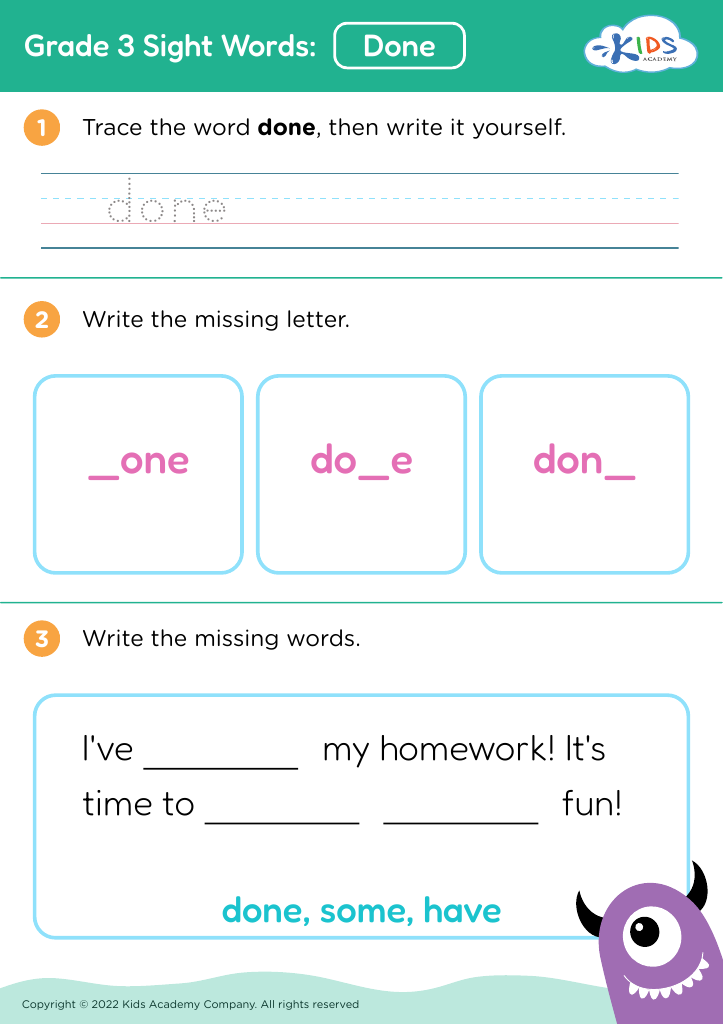Understanding multiplication Building Vocabulary Worksheets for Ages 7-9
3 filtered results
-
From - To
Introduce your child to the world of multiplication with our "Understanding Multiplication Building Vocabulary Worksheets" designed specifically for ages 7-9. These engaging worksheets help reinforce key concepts and vocabulary associated with multiplication, promoting mathematical fluency while enhancing reading comprehension. Each activity targets essential skills, enabling students to grasp the foundational principles of multiplication. This resource encourages interactive learning, making math fun and accessible. Perfect for classroom or at-home practice, our worksheets also foster confidence, paving the way for future mathematical success. Discover the joy of learning with our thoughtfully crafted materials that create a solid mathematical foundation for your child!
Understanding multiplication and building vocabulary are crucial components of a child’s education, particularly for ages 7-9, when foundational skills are developed. At this age, children are forming the building blocks of mathematical expectations, and multiplication is a key concept in this phase that influences their future success in more advanced math topics. Mastery of multiplication helps students develop critical problem-solving abilities and enhances their cognitive skills, boosting their confidence in tackling more challenging mathematical concepts.
Equally important is building vocabulary, as it enhances comprehension and communication skills. Children often encounter mathematical concepts that require precise language to understand and explain. A robust vocabulary allows them to grasp instructions, collaborate with peers, and articulate their thoughts clearly. Furthermore, developing mathematical vocabulary, such as “product,” “factor,” and “array,” prepares students to engage with math in a deeper way, fostering a positive attitude towards the subject.
Together, a solid understanding of multiplication and a strong vocabulary can enrich children’s overall learning experience, encouraging analytical thinking and effective communication. Parents and teachers play a vital role in nurturing these skills, ensuring that children are well-equipped to tackle the demands of both mathematics and language as they progress in their education.






























